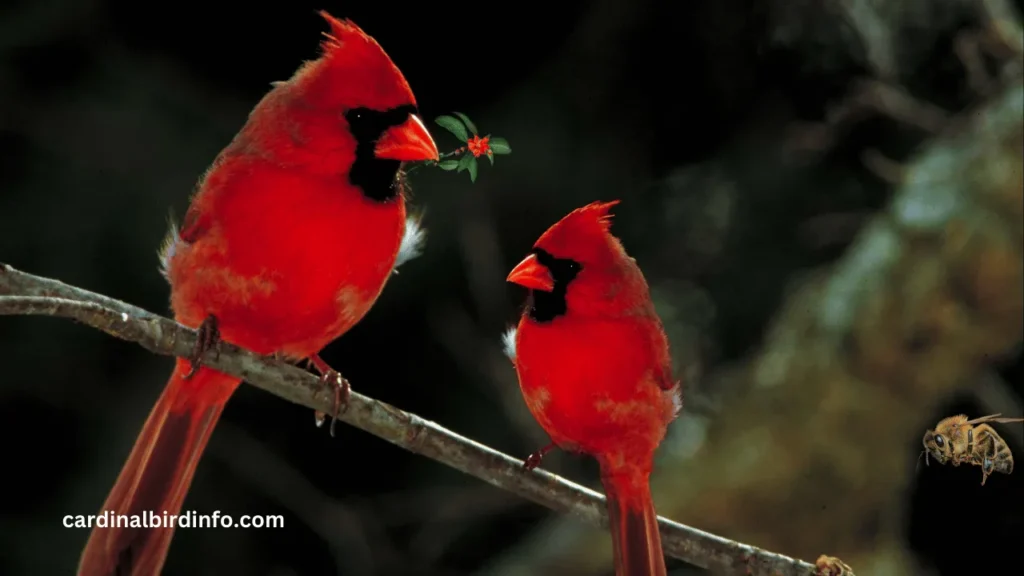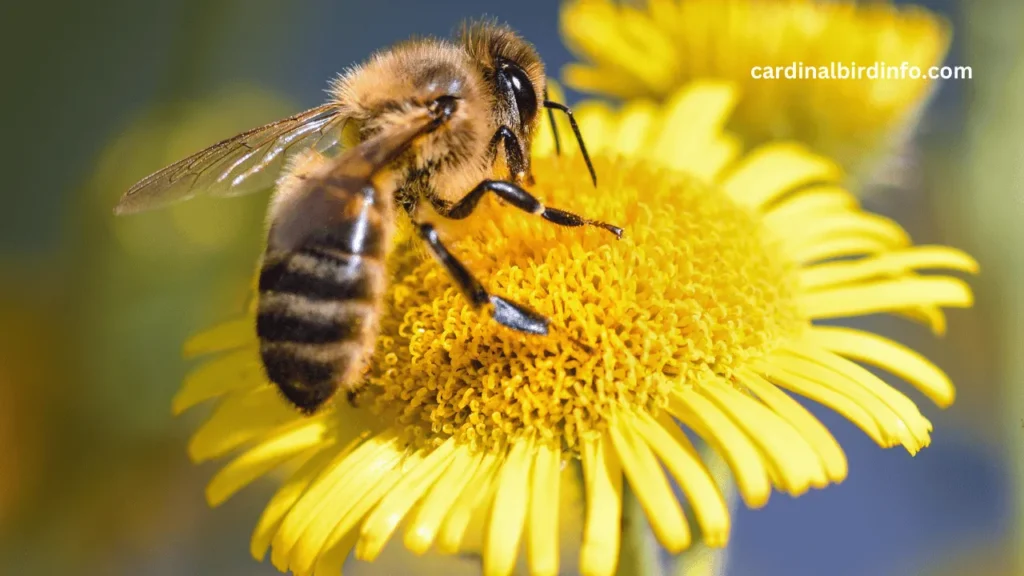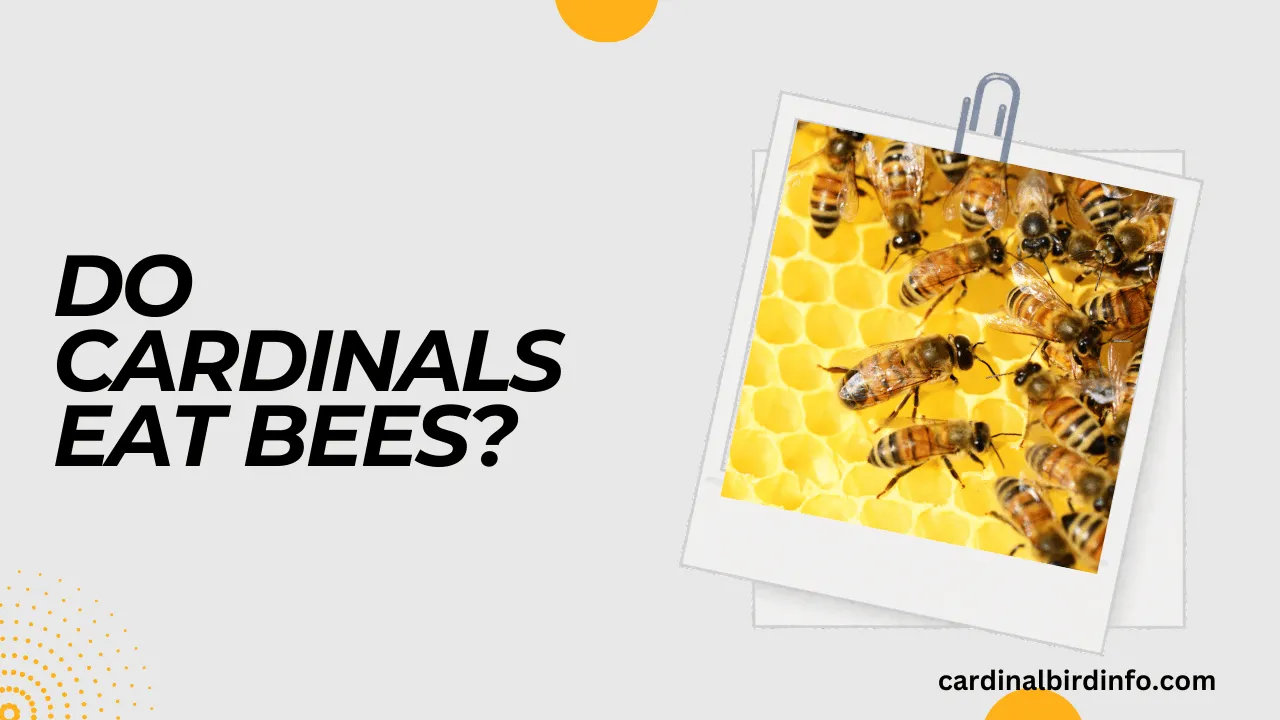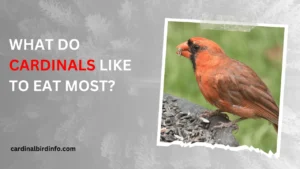Have you ever wondered if the vibrant red cardinals that visit your garden ever set their sights on a bee buzzing by? Cardinals are known for their striking appearance and charming songs, but their feeding habits hold fascinating surprises.
While these birds primarily enjoy seeds and insects, the idea of them catching bees may sound unexpected. So, do cardinals actually eat bees? And if so, what drives them to include these stingers in their diet?
Understanding the feeding behaviors of cardinals is not just a matter of curiosity—it’s about appreciating the intricate balance of nature. Birds like cardinals play a vital role in controlling insect populations, and their choices impact the ecosystems they inhabit.
Exploring whether cardinals target bees opens up a broader discussion about how animals adapt to their environment and how food availability shapes their diet.
In this blog post, we’ll dive deep into the world of cardinals and their dietary habits, including whether bees make it onto their menu. By the end, you’ll have a better understanding of why cardinals behave the way they do and what it means for our ecosystems. So, let’s get started!

Contents
Cardinals’ Natural Diet
Cardinals are primarily insectivores, meaning insects are a large part of their diet, especially during the breeding season when they need extra protein. They also enjoy seeds, grains, and fruits.
Insects like beetles, caterpillars, and grasshoppers are commonly eaten, making them a valuable part of a cardinal’s nutrition. However, their diet shifts with the seasons, adjusting to food availability in their environment.
During the colder months, when insects are scarce, cardinals rely more on seeds and berries, like sunflower seeds and wild fruits. This versatility helps them survive in diverse habitats. But when insects are in abundance, they’re an important protein source, especially for young birds growing in the nest.
Bees as a Potential Food Source
Bees are packed with protein and energy, making them a highly nutritious option for birds. While cardinals might not specifically seek out bees, they could eat them in areas where bees are abundant.
However, bees pose certain risks due to their ability to sting. Cardinals may target weak, injured, or slower bees, avoiding the potential danger of stings while still benefiting from the nutrients bees provide.
The availability of bees as a food source depends heavily on factors like habitat and climate, with bees being more accessible in warmer months or specific areas where flowers and bee populations thrive. Cardinals, though opportunistic, must carefully balance the risk and reward of hunting bees.

Factors Influencing Cardinal Behavior
Several factors could influence a cardinal’s decision to eat bees. Competition for food is a major one. Cardinals often share their habitat with other birds like sparrows and blue jays, which also feed on insects. If food becomes scarce, cardinals might be more inclined to eat whatever is available, including bees.
There’s also the predation risk cardinals face when attempting to catch bees. Unlike other, more typical prey, bees can sting, making them a riskier choice. Additionally, cardinals’ habitat preferences—from woodlands to suburban backyards—may limit or increase their interactions with bees, depending on the abundance of flowering plants and bee populations.
Research and Observations
Though there’s limited direct scientific evidence specifically highlighting cardinals eating bees, anecdotal observations suggest that cardinals might consume bees when opportunities arise.
In areas where cardinals and bees cohabitate, people have reported seeing these birds picking at bee colonies or occasionally catching bees in flight.
Citizen science projects, where everyday bird enthusiasts record their sightings, have become valuable for understanding these behaviors. Bird watching communities have contributed to data collection, offering insights into how often this might happen and under what circumstances.
Conservation Implications
Bees are crucial to ecosystems, aiding in the pollination of many plants that provide food for both humans and animals. The balance between birds and bees is essential—while birds may occasionally feed on bees, both need healthy environments to thrive.
Preserving natural habitats, rich in flowering plants, benefits both bees and the cardinals that might occasionally interact with them.
Conservation efforts focus on maintaining the biodiversity that supports both species. Habitat preservation initiatives not only protect birds and bees but also ensure that the broader ecosystem remains resilient.
Conclusion
So, do cardinals eat bees? The answer is yes, but rarely. While bees offer a good source of protein, they are not a common part of the cardinal’s diet due to the potential risks involved, like bee stings. Cardinals are opportunistic eaters, and in certain situations—especially when food is scarce or when bee populations are abundant—they might target bees.
Understanding these interactions between cardinals and bees reminds us of the delicate balance of nature. Both species play pivotal roles in their ecosystems, and their feeding habits, however unusual they may seem, are part of the broader story of survival. By appreciating these dynamics, we gain deeper insights into the world around us.
FAQs
1. Do cardinals regularly eat bees?
No, cardinals don’t regularly eat bees. Their diet mainly consists of seeds, fruits, and less risky insects like beetles or caterpillars.
2. Are bees nutritious for cardinals?
Yes, bees provide protein and energy, which are beneficial for cardinals, but they come with the risk of stings.
3. Do bees pose a danger to cardinals?
Yes, bees can sting if a cardinal tries to eat them, making them a riskier food choice compared to other insects.
4. Why would a cardinal eat a bee?
Cardinals might eat bees when other food sources are scarce or when bees are particularly abundant in their habitat.
5. Can a cardinal’s diet affect bee populations?
No, cardinals do not significantly impact bee populations since bees are not a primary part of their diet.
6. Do other birds eat bees?
Yes, some birds, like bee-eaters, are specialized to consume bees, but this is not typical for cardinals.








